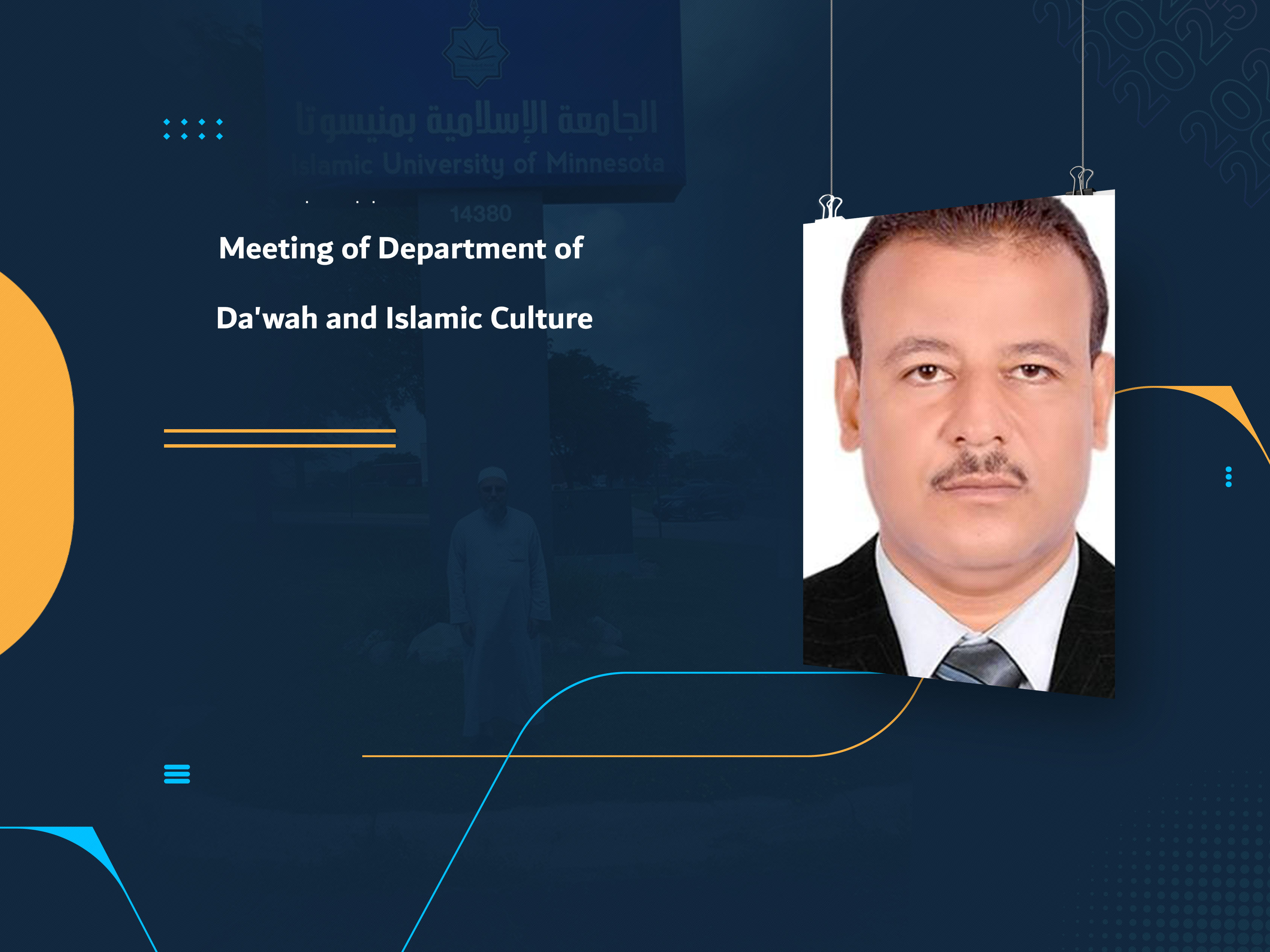Meeting of Department of Da'wah and Islamic Culture

On the evening of Thursday, July 3, 2025, a meeting was held for the Department of Da'wah and Islamic Culture at the College of Islamic Studies at the Islamic University of Minnesota, chaired by Dr. Taha Hussein Al-Jawhari, with the attendance of master's and doctoral students, starting at 9:00 PM Mecca time. This meeting aimed to enhance direct communication with students, listen to their opinions and suggestions, and discuss the main challenges they face during their academic journey.
The objectives of the meeting included strengthening the relationship between the department administration and students, opening a dialogue about academic and administrative challenges, presenting updates and upcoming activities, and gathering student suggestions for developing programs and activities.
The discussion focused on several key areas, including the importance of attendance and discipline. Dr. Al-Jawhari emphasized the necessity of commitment to attendance, noting that repeated absences negatively impact academic performance and final grades. The discussion also addressed seminars and supplementary courses, where the department head proposed organizing specialized seminars on topics not covered in the curriculum, such as Tafsir, Hadith, and Da'wah skills, based on student needs.
Additionally, Dr. Al-Jawhari stressed the importance of continuous communication with academic supervisors, warning against laxity in preparing scientific theses. He encouraged students to go beyond the limits of the curriculum and open themselves to various sciences and contemporary issues, enabling them to be influential advocates in their communities.
Furthermore, he clarified that students wishing to choose a thesis or supplementary research track should communicate with the administration before the end of the semester to determine supervisors and facilitate procedures. The self-learning system, adopted in some courses due to the limited number of students, was also explained, with the assurance that supervisors are available to answer inquiries through electronic means.
The meeting concluded with several recommendations, including commitment to attendance and engagement in lectures, submitting written suggestions for seminar topics, continuous follow-up with academic supervisors, early preparation for academic track selection, and making the most of the apprenticeship phase to acquire in-depth knowledge.
In closing, the department head reiterated that the door for communication is always open for students, whether through lectures or privately, wishing everyone success and achievement.


